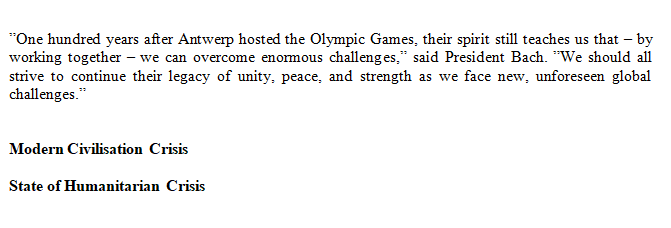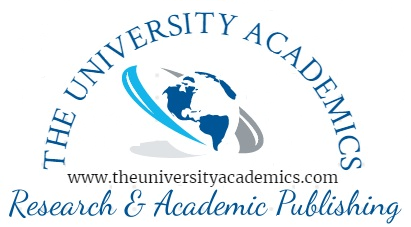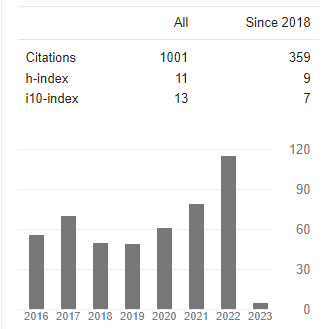ROLE OF OLYMPICS IN HUMAN DEVELOPMENT PARITY AND THE SPIRIT OF OLYMPISM
Abstract
Olympics has a fundamental paradigm, it is not only a sporting event held every four years, but a spirit of sportsmanship focusing on athleticism. sport excellence, competitiveness of the highest order. Olympics is eternal just like the human world, its civilisation and its culture. It is believed that the economic and social objective and commercial interest has intertwined with sport. It has become a great source of motivation for athletes but simultaneously, also demands intense training from the athletes for better performance every time. Therefore, the spirit of Olympism has enabled sport to combine human efforts and their sportsmanship for an intrinsic reward. Sport has become one of the most powerful tool for promoting gender equality and empowering young women and girls. In widest sense of the term, sports is a form of humanitarian education, clearly expressed in the Olympic Chapter in paragraph 2, “Olympism is a philosophy of life, exalting and combining culture and education, Olympics seeks to create a way of life based on joy found in effort, the educational value of good example and respect for universal fundamental ethical principal” (D. Michaelidis,). It is therefore, recognized that sport has that unrivalled capacity that can motivate and inspire people and, the Olympic Movement has the duty and the opportunity to contribute actively, in line with its vision of : “ Building a better world through sport”. However, many needs to be done and great resources are needed before an ideal world can be established as envisioned in the Olympic values.
Downloads
References
Michaelidis, D., ‘Sports for Young Athletes’, International Olympic Academy, 40th Session for Young Participants, International Olympic Committee and International Olympic Academy, pp 157
Sam Ramaswamy, “Athletes from developing countries in the Olympic Games”, International Olympic Academy 40th Session for Young Participants. Published and edited jointly by the International Olympic Committee and the International Olympic Academy, p.120
‘2021 Year in Review in 11 charts: The Inequality Pandemic’, (Dec 21, 2021) by Venkat Gopalkrishnan, Divyanshi Wadhwa, Sara Haddad, and Paul Blake (www.world bank.org)
worldbank.org
UNDP Report (2001, 2002, 2019, 2020). undp.org
Mandeep Singh Nathial, Analysis of set shot in basketball in relation with time to perform the course and displacement of center of gravity, American Journal of Sports Science, Vol.2 Issue.5 pp: 122-126 (2014). Retrieved from https://www.sciencepublishinggroup.com/journal/paperinfo.aspx?journalid=155&doi=10.11648/j.ajss.20140205.13
Mandeep Singh (2010). Evaluation And Improvement Of Sports Techniques Through Biomechanical Updated Analyzing Technology, University News, Journal of Higher Education Association of Indian Universities, Association of Indian Universities, Vol:48:Issue.05;2010 Pp45-57, 2010
Mandeep Singh Nathial, A Study of Adjustment and Emotional Intelligence of University Coaches in India, American Journal of Applied Psychology. Volume 3, Issue 6, November 2014 , pp. 122-126. doi: 10.11648/j.ajap.20140306.11
Mandeep Singh, 2019; “Effect of Mobile Screen Psychomotor Digital Image Motivators in Person Technique in Reducing Anxiety Level of Intervarsity Players of Cluster University Jammu, Blue Eyes Intelligence Engineering and Sciences Publication (BEIESP). Volume-9 Issue-1, October 2019, PP: 3750-3752, DOI: 10.35940/ijeat.A9811.109119. https://www.ijeat.org/portfolio-item/A9811109119/
SINGH, M., & SINGH SIDHU, A. (2016). A COMPARATIVE STUDY OF BODY COMPOSITION AND RELATIVE HEALTH STATUS AMONG RESIDENT AND NON-RESIDENT STUDENTS IN DIFFERENT SCHOOLS OF J&K. International Journal of Behavioral Social and Movement Sciences, 5(3), 08–13. Retrieved from https://ijobsms.org/index.php/ijobsms/article/view/320
Singh Nathial, D. M. (2012). ANALYZING THE CREDIT BASED SYSTEM IN PHYSICAL EDUCATION. International Journal of Behavioral Social and Movement Sciences, 1(3), 172–176. Retrieved from https://ijobsms.org/index.php/ijobsms/article/view/37
SHARMA, N. P., & SINGH, M. (2014). SENIOR AGE GROUP RELATIVE EXERCISES AND IMPACT ON THEIR LIFESTYLE. International Journal of Behavioral Social and Movement Sciences, 3(04), 78–82. Retrieved from https://ijobsms.org/index.php/ijobsms/article/view/246
CHAND PURI, P., MISHRA, P., JHAJHARIA, B., & SINGH, M. (2014). COORDINATIVE ABILITIES OF VOLLEYBALL IN DIFFERENT AGE GROUPS: A COMPARATIVE STUDY. International Journal of Behavioral Social and Movement Sciences, 3(3), 56–68. Retrieved from https://ijobsms.org/index.php/ijobsms/article/view/228
Dr.Mandeep Singh & J N Baliya, 2013; “A study of family stress among working and non-working parents”, International Journal of Research in Social Sciences.Vol 2, 2. 194-201. https://indianjournals.com/ijor.aspx?target=ijor:ijrss&volume=2&issue=2&article=013
Sustainable Development Goal 2, Zero Hunger: https://sustainabledevelopment.un.org/sdg2
Action Against Hunger, “International Nutrition Security Policy”, April 2014, page 8
United Nations World Food Programme, Food and Agriculture Organization of the United Nations.
https://www.foodaidfoundation.org/world-hunger-statistics-2020/
https://data.unicef.org/topic/nutrition/malnutrition/
https://olympics.com/ioc/olympic-movement
https://olympics.com/ioc/gender-equality
https://olympics.com/ioc/beyond-the-games
https://olympics.com/ioc/education
https://olympics.com/ioc/education/olympic-values-education-programme
https://olympics.com/ioc/education/olympic-values-education-programme/who-is-ovep-for
https://olympics.com/ioc/women-in-sport-commission
https://olympics.com/ioc/gender-equality/advocacy-and-support/gender-equality-review-project
https://olympics.com/ioc/gender-equality/advocacy-and-support/gender-equality-review-project
https://olympics.com/ioc/refugee-olympic-team
https://olympics.com/ioc/sustainability
http://extrassets.olympic.org/sustainability-strategy/executivesummary/1-1

Copyright (c) 2019 Dr. Anek Goel, Mary C. Lethil

This work is licensed under a Creative Commons Attribution 4.0 International License.














